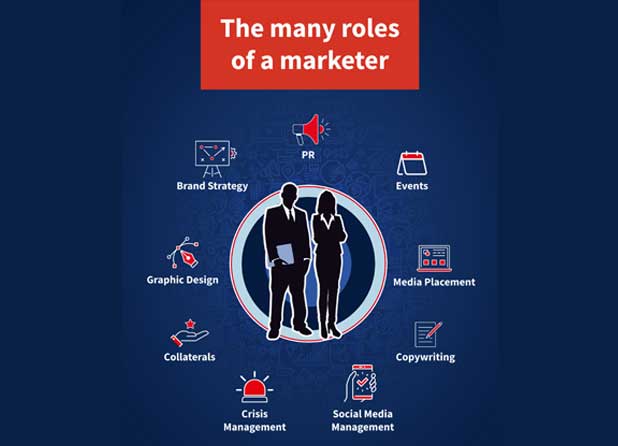
Marketing is a critical business function. It drives growth and creates a commercial advantage for any organisation, but with a wider remit than ever before, marketers today face a range of challenges.
Whilst teams and budgets are lean for most, marketing as a function now has more responsibility than ever – to guide a business towards growth in the face of uncertain times. However, there is a clear pattern emerging that is knocking marketers’ confidence and making it that one step harder to thrive.
OOH! Campaign Breakfast Briefings are back! Join us to discuss all things Out-Of-Home – live and in-person. But register now. Tickets are limited. Click here for more details.
As companies become more competitive than ever before, there is a persona being placed on marketers to create leads rather than build relationships.
There is no secret formula for determining marketing success. Every customer has different expectations with several KPIs on reach, impressions and so on. However, there is more importance being placed on leads, which is only a small section of a marketing role.
So why should everything be results driven? The solution: we need to think long-term and build our brands.
The hats a marketer wears can take many forms, including PR, social media management, brand strategy, graphic design, copywriting and even SEO strategy.
Reducing marketing to only lead generation shows a fundamental misunderstanding of what we do. I always like to give the analogy of meeting someone and they tell you they are a doctor, then you ask them: “Oh really? Well how many lives did you save today?” It completely diminishes the scope of what a marketer does and is a very myopic way of thinking.
What makes a campaign a success?
There are many other metrics that makes a campaign successful for a brand including social media engagement, website visits, increased awareness, improved reputation and the list goes on.
Social media engagement is critical to awareness and more people being aware of your marketing message.
Key questions that marketers often get asked: Are your social media followers growing? Do you have an increase in the number of visitors to your website? Are more people searching for you online and more importantly, are they finding you?
If you are only initiating tactical campaigns to generate leads, you will be forgotten when the next competitor arrives in your space. Build a campaign that is relevant to your clearly defined target markets and that promotes awareness. People will remember you and your reputation will be built on a solid foundation.
I have often found that when marketing teams present their findings to other departments, they are often asked the wrong metrics and only evaluated on how many leads have been generated.
Compartmentalising Campaigns
One of the biggest failures happens when compartmentalising campaigns based on individual channels and then judging the number of leads or CPL (cost per lead) of each of these channels when evaluating an ROI of a marketing budget or evaluating how worthwhile a campaign is.
Leads are a result of multiple marketing touchpoints that have come together to tell your story. The success of a campaign should not only be judged on leads generated but rather the multiple touchpoints your stakeholders and customers are exposed to, across all your marketing channels.
But what is the ideal measure of success for a marketer and an organisation engaging in marketing activities?
A key example is when a customer hears a radio ad, sees a post on Facebook or Instagram, then visits your website or makes a phone call. Which of these touchpoints do you attribute the lead to? If I removed one of them, would the lead have converted? This is something that is impossible to quantify.
A successful campaign in either advertising, events, PR or social media, cannot simply be evaluated on one metric, more specifically, “how many leads did a campaign generate and how many of these are good quality leads?” For the quality of leads, we are often expected to have answers for outcomes that are out of our control. Alternatively, in order for marketing teams to excel, it would be better to provide constructive feedback, case studies or solutions to enhance our campaign performance.
The impact on mental health
Historically a taboo topic, mental health is now discussed widely across media platforms, and marketers have had a huge role in normalising conversations around anxiety, burnout, wellness, and work-life balance. However, there needs to be more consideration for marketer’s own mental wellbeing, where placing lead generation pressures can have adverse effects.
Without a marketing department, your brand would not have a voice. With the right support and encouragement, and a long-term vision of building your brand, the leads will come.









